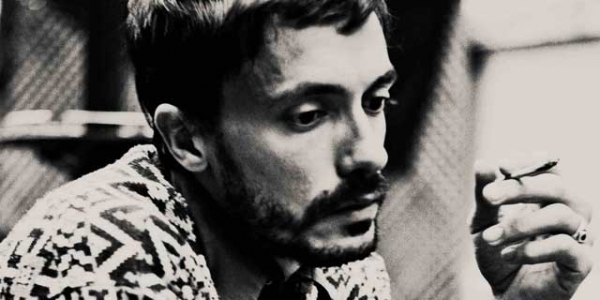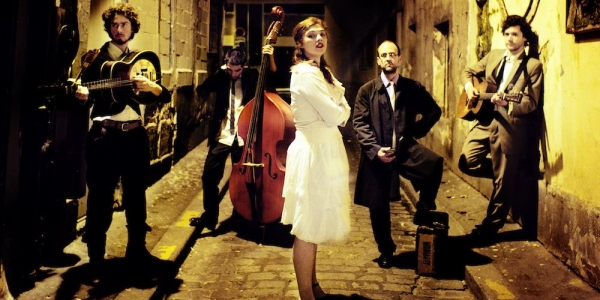Vincent Moon’s 2009 film about Japanese singer Kazuki Tomokawa, La Faute Des Fleurs, won the Sound & Vision Award at the Copenhagen International Documentary Festival. Moon’s wanderings have brought him close to musicians such as R.E.M, Arcade Fire, Beirut, The National, Sufjan Stevens, Grizzly Bear and Mogwai. These are probably the projects people instantly recognise, the unexpected presentation of music on film – seamless and beautiful – shots of an entire band playing their tunes inside a cramped elevator, or wandering through an old factory as the camera seamlessly records each song. But ask Moon about any of these old achievements and you’re likely to get a quick dismissal in favour of discussing his new projects.
“I’ve been travelling [and] in the past six months, I’m more and more interested in traditional music and traditional cultures, and the link we can make with these very traditional ways of music and extremely modern technologies and how those things link at some point…I just spent two months in Indonesia, I’m going back to Indonesia tomorrow, then I will spend some time in the Philippines, next month I’ll be in Madagascar, Ethiopia… When I go to those places, I don’t know what I’ll find. I have some ideas, but I don’t have the name of a musician or anything like that. So I’m not working in the field of pop or funk world anymore, even though sometimes I bump into one or two guys [from those areas]…but it’s not what I’m researching anymore, I’m someone else in my mind, more in a spiritual quest, there are bigger questions involved. I just want to travel and discover the world and be a better person [that way], maybe!”
Filmmaking seems, within Moon’s perspective, a great reason to throw himself in the deep end.
“Basically, for me to make a film…it’s just to meet some people. It allows me to have a new experience, [to have] autonomy. It also pushes me [to go to] locations that I would never go to if I was not doing a film. I’m saying this because I am a nomad. I’ve been travelling for three years now. My camera allows me to discover the world in a more intense way, but I don’t make films for the films themselves, the films are not the goal, I just use them as a sort of pretext to put myself in sometimes uncomfortable situations! That’s why I make films all the time.”
A key example of his far-flung filmmaking results includes work he completed in Bogotá. “I found this amazing rapper from down there who’s like the voice of the people, in a way, and I organised a show in the street…It was amazing, really interesting, and it also allowed me to bring a lot of my friends from the north of Bogota, who were always lived in Bogota but never saw that aspect of the city.”
You’d be hard pressed trying to get information from Moon about his inspirations or influences, which makes his thought process a little difficult to pin down. He’s certainly moved away from the more mainstream-music aspect of his filmmaking. He won’t pinpoint any particular individuals who have been influential in his work, but he does note one documentary, Step Across the Border, a 1990 film on English musician Fred Frith, as a work that’s had a strong impact on his work. “For me, it had a very big influence on me, in that specific relationship, about how you can approach music”.
How then, does Moon see the relationship between the visual aspect of film and the music itself? “I started to make films about music – I’m a huge fan of cinema and music, but definitely more music – more of the rhythm of music, and I was always just very curious in the relationship those two mediums could have. In general, cinema has never been very inventive or exciting, you know, when it comes to approaching music, and trying to create a dialogue with music…It wasn’t very clear in my mind, I just started to make films and then realised that’s what I was really excited about, and really pursuing this quest of that exchange. I’m interested in how visuals can match the rhythm of the music, and create this spiritual harmony.”
All in all, filmmaking for Moon is a great excuse to identify what he wants to get from the world. “I’m not trying to fight against anybody…I don’t want anything to do with the any kind of industry, that’s for sure. I just want to do my own stuff.”
BY SIOBHAN ARGENT

